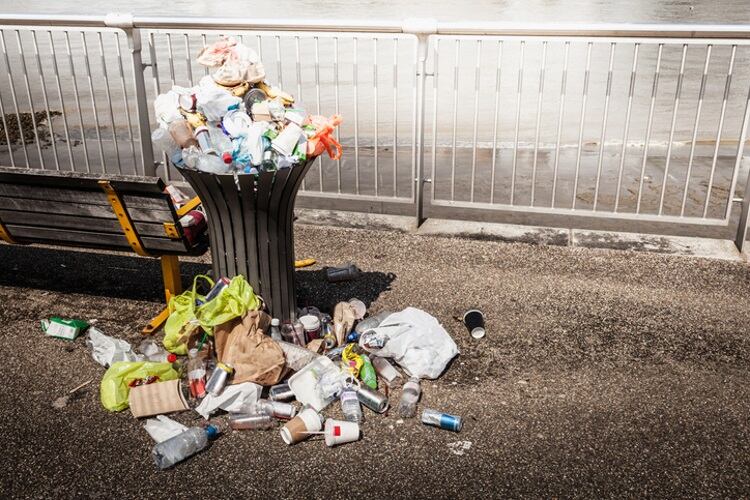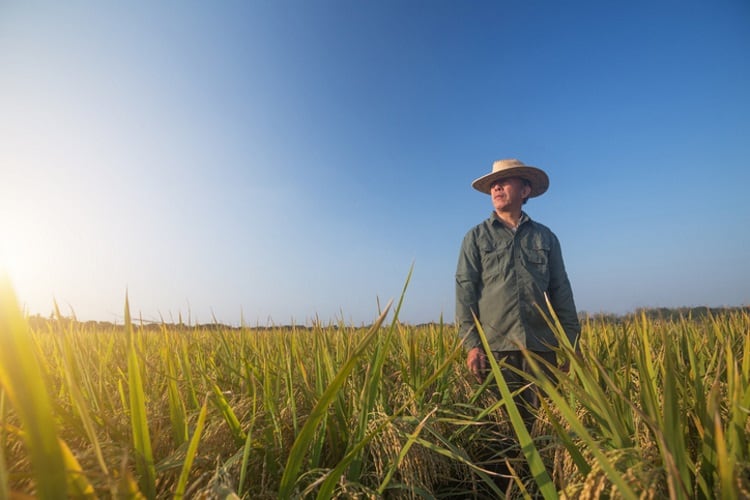The mission driven, free from independent snack producer enlisted ClimatePartner to measure its full carbon footprint. Every step was considered, from the sourcing and transport of ingredients, to how the bars are made, the packaging used, the outbound transport to stores across the UK, how the product gets into the hands of its customers and finally, the end of life of the product.
It calculated Perkier creates a total carbon emission of 501 tonnes, the equivalent of 596 economy flights from London to New York.
To compensate, the startup has chosen to uptake all three of the certified Carbon Offset projects, namely:
- Carbon avoidance – education and new sources of income for local communities to avoid deforestation.
- Carbon reduction – such as adopting hydropower as an alternative energy source and boreholes for clean water.
- Carbon removal – through afforestation (planting new trees or sowing seeds to create a new forest).
The projects will include providing renewable energy in Congo, clean water in Sierre Leonne as well as afforestation in the UK, Peru and Nicaragua. The motivational brand has gone one step further and is committed to supporting projects in 2023 to avoid deforestation in Borneo, where critically endangered orangutans are losing their habitat to the palm oil industry.
It’s what consumers want
“88% of UK consumers want to live more sustainably,” said Ann Perkins, founder of Perkier.
“We have taken action to help reduce our company’s impact on the planet, and will continue to do so on our roadmap to be Net Zero by 2030. By providing Carbon Neutral products to the snacking category, we are helping customers and consumers make better-informed decisions.
“It is a pleasure to partner with ClimatePartner to measure Perkier’s full carbon footprint, from growing the ingredients to the moment after our Perkier bars are eaten, and offset our residual carbon through truly inspiration initiatives.”
ClimatePartner has been operating for over 15 years in 10 countries, with a team of over 400 climate experts to help producers adopt climate action solutions: from carbon footprints and climate action strategies all the way to carbon neutral products.
Emilien Hoet, head of ClimatePartner UK, added, “Perkier has shown great dedication towards its goal to become a Net Zero company by 2030. By taking responsibility for its residual emissions, they are demonstrating that climate action can and should be part of how business operates.”
The Perkier range is nutritionist approved, being lower in sugar and packed with protein, fibre and 100% of your daily Vitamin D, C & B12. The probiotic bars are also packed with billions of active cultures, vegan, gluten-free and palm oil-free. The bars are sold in many of the UK’s leading retailers, including Morrisons, Sainsbury’s and ASDA, along with food-to-go outlets and on Amazon.
Perkier’s carbon offset projects
Carbon avoidance (Borneo and Colombia)
Tropical swamp forests belong to the world's most efficient carbon sinks. In Borneo, this type of forest has another unique function: it is one of the two remaining habitats for wild orangutans. Along with orangutans, countless other animal and plant species are severely affected by the ongoing deforestation, driven by the palm oil industry.
With high biodiversity, these forests have up to 1,000 plant and animal species live in every square kilometre. Clearing of the swamp forest releases CO2 and large amounts of the particularly climate-damaging gas methane.
Carbon reduction
Renewable energy through hydropower (Congo)
Virunga National Park (on the eastern border of the DRC) is Africa’s oldest national park with the greatest biodiversity of the entire continent. Its rivers and streams provide a source of life and energy to the region’s unique animals, such as the world’s last remaining wild mountain gorillas.
The currents of the Rutshuru River are also used to generate sustainable energy through the small Matebe run-of-river power plant. With a capacity of 13 megawatts, the plant generates clean electricity for households and small businesses giving about four million inhabitants access to electricity for the first time.
Clean water (Sierre Leone)
Sierre Leone is a largely rural country where people have to boil water on wood-fired stoves to make it suitable for drinking, cooking and washing. This project provides bore hole technology for clean water, avoiding C02 emissions from fires and deforestation for firewood.
It also helps gender equality as it reduces the need for women and girls to spend their time collecting water and firewood, rather using it for education and income development.
Two billion people worldwide do not have access to clean drinking water.
Carbon removal
Afforestation (UK & Peru)
Much of the world’s precious woodlands have been affected by climate change: extreme weather events like heavy rain, floods, heatwaves, droughts; degraded forests are more vulnerable to damages, pests like bark beetles.
Woodland Carbon Code Projects are aimed at restoring and/or foresting rough pasture into habitat that benefits local wildlife and society, increasing the habitats’ connectivity in the regions, increasing biodiversity, and boosting the status of watercourses that run through the woodland area.
Woodland creation is also augmenting forest management, providing habitats extensive enough to be sustainable and creating areas to form a vast network of restored habitats for future generations.
Afforestation (Nicaragua)
The project in eastern Nicaragua has planted more than 1 million plants of a native species of giant clumping bamboo, covering 2,361 hectares while protecting an additional 1,000 hectares of old forest as a conservation zone. It has transformed a degraded landscape into a flourishing and biodiverse ecosystem.
Bamboo is one of the most efficient biological tools for fighting climate change. Sustainable forestry is able to absorb large quantities of carbon due to the use of fast-growing species.
Other projects aim at providing shade and soil improvement in agroforestry. The storage capacity of afforestation areas depends on the type of tree and the geographical location. New forests create habitats for animal and plant species and opportunities for local people.





